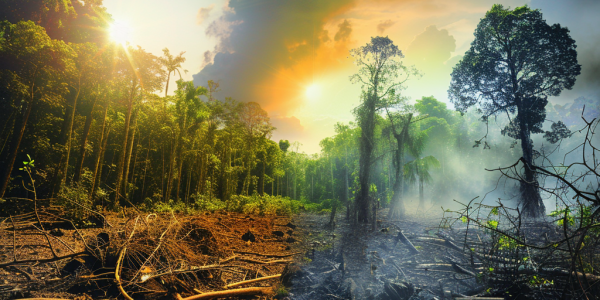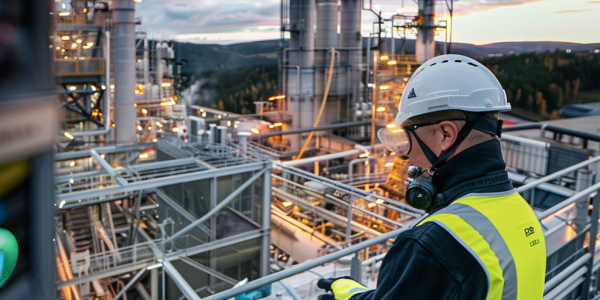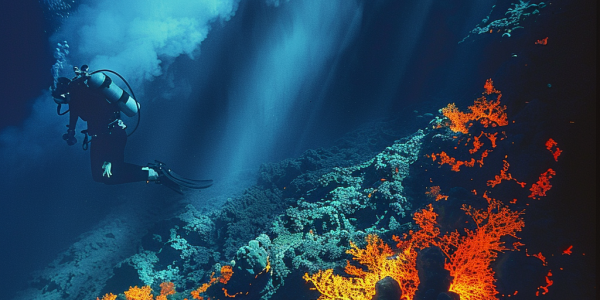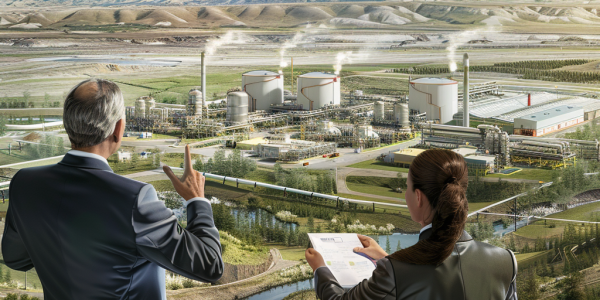Study Links Ocean Density to Carbon Capture in Marine Plankton
Recent research from the University of Oxford reveals a critical link between ocean density and the carbon capture abilities of marine plankton, particularly foraminifera. This study highlights how changes in ocean density affect the calcification process of these organisms, with significant implications for carbon cycling and oceanic CO2 absorption in the face of climate change.
KIST Develops Innovative Silver-Silica Catalyst for Enhanced CO₂ Reduction
A groundbreaking study from the Korea Institute of Science and Technology (KIST) reveals a novel silver-silica composite catalyst that enhances CO₂ reduction efficiency. Led by Dr. Hyung-Suk Oh and Dr. Woong Hee Lee, this innovative catalyst maintains nearly 100% selectivity even at high current densities, addressing challenges in carbon capture and utilization technologies. This advancement could revolutionize CO₂ utilization, making it more commercially viable and effective in combating climate change.
Alarming Decline in Natural Carbon Sinks Poses Threat to Climate Efforts
Recent studies reveal that natural ecosystems, crucial for absorbing carbon dioxide, have nearly stopped this process, raising concerns about climate change. The decline in carbon sinks, exacerbated by rising temperatures and extreme weather, threatens to accelerate global warming. With 2023 marking the highest CO2 emissions ever, the need for urgent climate action is critical to preserve and restore these vital ecosystems.
Innovative CSAR Technology Enhances Carbon Capture Efficiency
Researchers from SINTEF have unveiled the Continuous Swing Adsorption Reactor (CSAR), a groundbreaking carbon capture and storage (CCS) technology aimed at efficiently sequestering post-combustion CO2. With less energy consumption than traditional methods, CSAR promises to enhance sustainability in combating climate change. Successfully trialed at a waste combustion plant in Norway, this innovative system is set to revolutionize the CCS landscape, offering a cost-effective solution for industries looking to reduce their carbon footprint.
Discovery of ‘Chonkus’ Bacterium Offers Hope in Climate Change Fight
The discovery of a new bacterium, UTEX 3222, known as ‘Chonkus,’ offers hope in the fight against climate change. Found in volcanic ocean vents, this cyanobacterium shows exceptional capabilities for carbon dioxide absorption, making it a promising candidate for carbon capture technologies. Research highlights Chonkus’s potential to significantly reduce atmospheric CO2 levels, paving the way for innovative solutions in environmental science.
20-Year Study Reveals Complex Impact of Climate Change on Alaska’s Permafrost Forests
A groundbreaking 20-year study by Osaka Metropolitan University reveals how climate change impacts carbon dynamics in Alaska’s permafrost forests. The research, published in the Proceedings of the National Academy of Sciences, highlights a complex shift from CO₂ sinks to sources and back, emphasizing the adaptability of black spruce trees amid changing environmental conditions. This vital study aims to refine climate models and enhance our understanding of ecosystem responses to global warming.
Rainfall Enhances Ocean’s Carbon Absorption by Up to 7%
A groundbreaking study reveals that rainfall significantly enhances the ocean’s ability to absorb carbon dioxide (CO2) by 5% to 7%, equating to an additional 140–190 million metric tons annually. Led by oceanographer David Ho, this research emphasizes the critical role of precipitation in the ocean’s carbon sink capacity and calls for a reevaluation of climate models to include rainfall effects on CO2 absorption.
Breakthrough Discovery of Complex Carbon Molecules in Interstellar Cloud Sheds Light on Origins of Life
A groundbreaking discovery by MIT scientists reveals complex carbon molecules, specifically pyrene, in a distant interstellar cloud. This finding enhances our understanding of the origins of life and suggests that these organic compounds could have contributed to prebiotic chemistry on Earth. The detection of pyrene challenges previous notions about the survival of complex molecules in harsh cosmic environments, opening new avenues for research into the building blocks of life in the universe.
New Research Reveals 31% Increase in Global Plant CO2 Uptake
Recent research published in Nature reveals that global plant carbon dioxide (CO2) uptake has increased by 31%, now estimated at 157 petagrams of carbon annually. This study highlights the critical role of terrestrial ecosystems in carbon sequestration and climate change mitigation, utilizing innovative tracking of carbonyl sulfide (OCS) to enhance understanding of photosynthesis. These findings could inform future climate models and policy decisions aimed at reducing greenhouse gas emissions.
Canada’s Pathways Alliance Pushes Forward on Major Carbon Capture Project
Natural Resources Minister Jonathan Wilkinson expresses optimism for a major carbon capture project in Alberta led by the Pathways Alliance, aiming for a $16.5 billion investment. This initiative is crucial for achieving net-zero emissions by 2050, marking a significant step in Canada’s climate strategy. Recent constructive meetings highlight collaboration between government and industry, signaling a renewed commitment to sustainability and economic growth in the energy sector.










